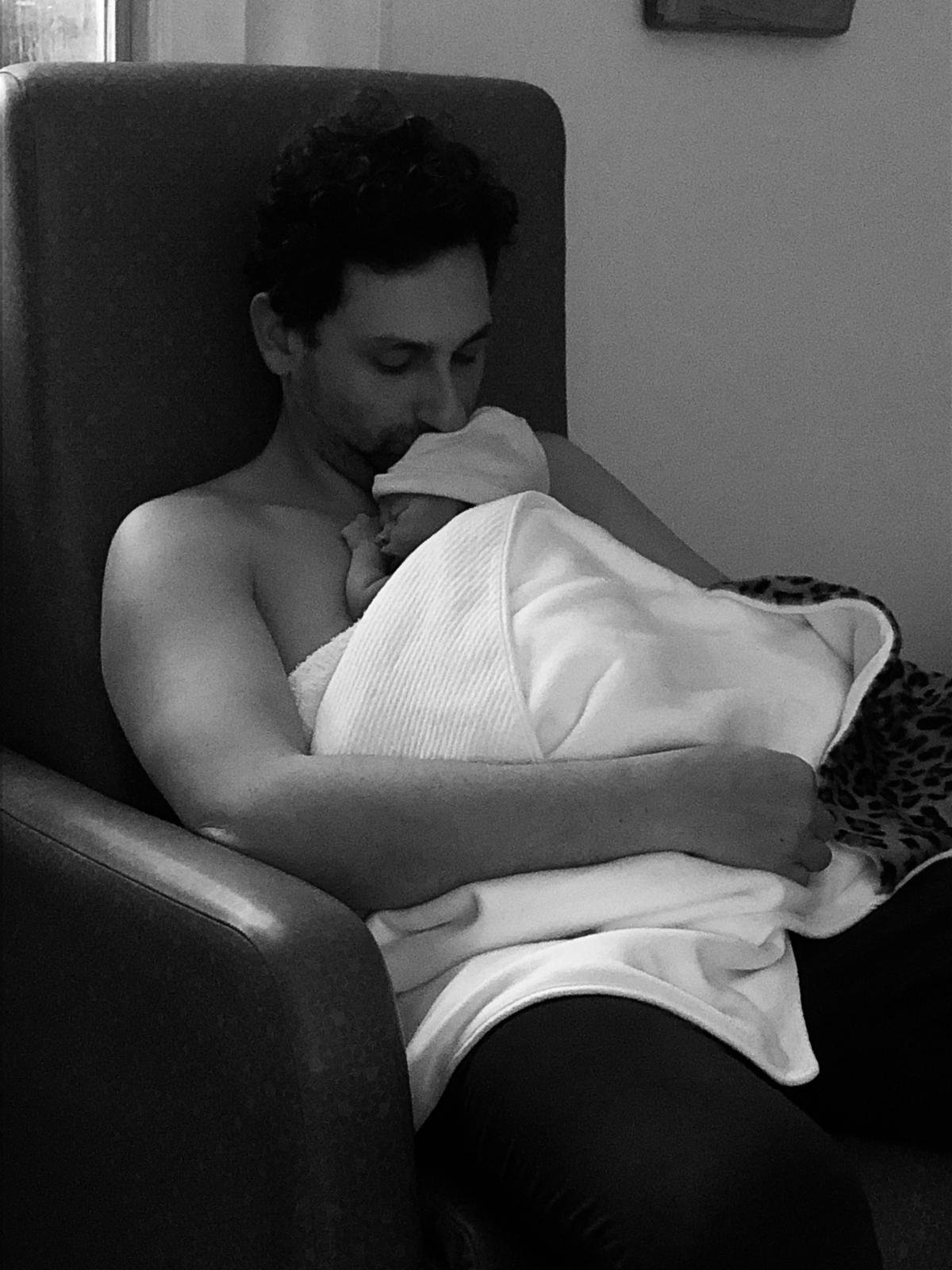The Golden Hour After Birth: A Vital Window for Bonding and Health
Skin to skin contact with mother and baby
The first hour after a baby's birth, often called "the golden hour," is a magical and crucial time for both mother and child. Research shows that this initial period, when mother and newborn can bond, is beneficial for both emotional connection and physical health. While this hour can look different depending on each birth experience, recognising its importance can help parents make the most of this once-in-a-lifetime moment.
What Is the Golden Hour After Birth?
The golden hour is the first 60 minutes immediately following a baby's birth. During this time, uninterrupted skin-to-skin contact between the mother and newborn is highly encouraged. This period allows both mother and baby to adjust to their new roles in an intimate, peaceful environment. It must be noted that you are not restricted to a 60-minute window – you can enjoy this period for a longer period.
While each family may experience this hour differently, and some may face additional medical considerations, the golden hour generally focuses on bonding, warmth, and the mother-child or parent-child connection. This is a key time for the newborn to transition smoothly to life outside the womb, receiving warmth, comfort, and their first taste of breast milk if breastfeeding is chosen.
Key Benefits of the Golden Hour
1. Encourages Bonding
Skin-to-skin contact during this hour is one of the most important bonding experiences. Holding the baby close triggers the release of oxytocin, known as the "love hormone," in both mother and baby, creating a deep emotional connection. This connection sets a foundation for a strong parent-child bond, which research suggests can positively impact a child's emotional development and well-being.
2. Boosts Breastfeeding Success
The golden hour can greatly support the initiation of breastfeeding. Many newborns have a natural instinct to "root" and seek the breast when placed skin-to-skin. Studies show that babies who begin breastfeeding during this time are more likely to breastfeed successfully over the long term. Even mothers who may face challenges with breastfeeding later on often find that starting early provides lasting benefits.
3. Regulates Baby’s Vital Signs
Skin-to-skin contact helps regulate the newborn's heart rate, breathing, and body temperature. In this warm, familiar environment, the baby adapts more easily to life outside the womb. Babies placed skin-to-skin with their mothers have also been shown to cry less, as they feel secure and comforted.
4. Promotes Maternal Recovery
The golden hour isn't just beneficial for the baby; it also aids in the mother's physical recovery. Close contact can stimulate the release of oxytocin, helping the uterus contract and reduce post-birth bleeding. Oxytocin also promotes relaxation and can help mitigate the stress and fatigue of childbirth, contributing to a smoother recovery process.
5. Supports Early Immunity and Microbiome Development
During this hour, a mother’s microbiome—bacteria passed from mother to baby through skin contact and breastfeeding—begins to shape the baby’s own microbiome. This initial exposure can be crucial for developing a healthy immune system, potentially impacting the child’s health in the years to come.
When Complications Arise: Adjusting the Golden Hour Experience
It’s essential to acknowledge that not every mother-baby pair can experience the golden hour in its traditional sense. Some births require medical intervention, and complications may mean that immediate skin-to-skin contact isn't possible. Families facing additional challenges—such as premature birth, cesarean delivery, or maternal health issues—can still find ways to make this time meaningful.
1. For Babies in the NICU
When a baby is born premature or requires specialised care in the NICU (Neonatal Intensive Care Unit), parents might be unable to hold their newborn right away. In these cases, "kangaroo care" (holding the baby skin-to-skin as soon as it is medically safe) can offer similar benefits. Many hospitals support kangaroo care, even in intensive care settings, to give parents the bonding experience once the baby is stabilised.
Studies on kangaroo care—holding a premature or NICU baby skin-to-skin on the parent's chest—highlight numerous benefits for both the infant and the parent. Research shows that kangaroo care helps regulate the baby's heart rate, breathing, and body temperature, mirroring the benefits seen with full-term newborns during the golden hour. It’s associated with decreased stress and pain in premature babies, leading to improved weight gain, better sleep patterns, and enhanced cognitive development. For parents, kangaroo care fosters bonding, reduces anxiety, and empowers them in their role, helping to establish a strong parent-child connection even in a clinical setting.
2. Cesarean Births
father and daughter skin to skin contact
For mothers who have a cesarean birth, hospitals often work to create "gentle cesarean" protocols, allowing the baby to be placed on the mother’s chest in the operating room when possible. In cases where immediate contact is delayed, partners can step in and hold the baby to establish that crucial bond until the mother is ready. Some mothers find reassurance and connection through hearing their baby's sounds or seeing them in a nearby bassinet.
3. Health Complications in the Mother
Some mothers may experience health complications, such as high blood pressure or blood loss, that require additional medical attention. When direct contact isn’t possible, having the baby close, even if separated by a short distance, can still allow the family to begin bonding. As soon as the mother feels well, even brief skin-to-skin moments can contribute to the bonding process.
Making the Most of the Golden Hour
If you’re expecting and planning for your baby’s arrival, here are a few ways to prepare for the golden hour:
Discuss with Your Care Team: Let your healthcare providers know if you’d like to have immediate skin-to-skin contact after birth. Hospitals today often support these requests and can offer suggestions to maximise this time.
Consider a Support Plan: For families who might face challenges, talking with your care team about alternatives can help. Having a partner or family member involved to hold the baby close if the mother needs additional care can still help establish a comforting environment.
Be Flexible: Remember, the golden hour can be flexible. The first hours and days after birth also provide time for bonding. Take each moment as it comes and embrace your unique journey.
A Special Moment, No Matter the Circumstances
The golden hour is a beautiful, bonding experience that can offer health benefits and emotional fulfillment. However, it's essential to remember that there is no "one-size-fits-all" golden hour. Each birth experience is unique, and whether your journey includes a traditional golden hour or an adjusted version, those first moments with your newborn are just the beginning of a lifelong bond.
In a world that often emphasises idealised versions of childbirth, it’s important to acknowledge that not every journey goes as planned, and that’s ok. The love and connection between parents and their newborn is built over time, and the golden hour, while valuable, is only one part of that journey.
Final Thoughts
For those who can experience it, the golden hour offers an irreplaceable moment of connection, but every family has their own path. Embrace each step with flexibility and compassion for yourself. The bond with your baby is not defined by a single moment but by the continuous, loving presence that grows from day one.



